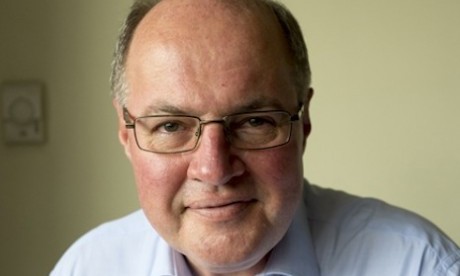Characterizations of Pope Francis abound. In something that hasn’t happened since 1979, when John Paul II did it, Pope Francis this week made the Time magazine cover story everywhere in the world except the United States – which went with a story about the ‘not guilty’ verdict in a case against a white man who shot and killed an African-American teenager that has polarized public opinion.
The accounts of Papa Francesco are varied. Sometimes he’s portrayed as a Catholic Dalai Lama – all sweetness and serenity in the face of the world’s horrors and all the complexity that cultures and institutions create for innocent individuals.
He visits jailed refugees; he says Mass in prisons; as Bishop of Rome (which he prefers as his title to pope) he says parish Masses and hears confessions; he has announced his respectful and non-judgmental attitude to gays; he embraces the disabled and hugs babies. His reactions are warm, humane and tug at your heartstrings.
At other times he’s expected to be a senior executive of a global agency that specializes in refitting and refocusing extensive and well resourced enterprises that have lost direction. He has inherited a Vatican in tumult over alleged corruption, inefficiency, arrogance and the influence of a “gay lobby” that has adversely affected good governance.
Francis has declared his hand on the sort of people who should be in leadership positions in the Church – simple, humble, poor, engaged and respectful people who are pastors rather than authoritarian rulers, and leaders who understand their own and their flock’s frailty, and who are listeners first.
But he has also brought in McKinsey’s, a consultancy firm that is a world leader in advising companies, even nations, on managing organizational and cultural change. Pope Francis has engaged the services of the chief executive of McKinsey’s in Germany to advise him on how best to refit the Vatican to deliver on its mission.
In what may be the first sign of the German’s work, the pope has appointed a committee of seven lay experts with a cleric as their secretary to advise on all matters financial and operational in the Vatican.
Even if someone inside the Vatican came up with the idea, it is the first time that the Vatican itself has looked outside its own processes and resources for guidance about how to do its job.
The recurrent resort of dioceses and religious congregations is to invoke canon law as the guide on how to do things, to search out the way people in the institution have done it before, to appeal to the constitutions or the memory of the founder as a guide to the next step.
What this betrays is the limited experience, lack of training for management and leadership and myopic approach that too many “leaders” in the Church take. Not for them to investigate how comparable problems are handled by institutions away from the Church.
In my experience, too many in clerical and religious life say, “We’ve always done it this way and I don’t want to be the one to set a precedent by looking outside the Church (or the congregation) for guidance”.
Result: stagnation, inefficiency and failure. It’s living proof of one definition of insanity in which, after failing the first time, one attempts the same task using the same approach but expects a different result.
Opening up to new approaches and to what Pope Francis says he’s not afraid of – making mistakes – has a much greater likelihood of bringing lasting change than just repeating a failed formula.
But how is he going to do it? As the Dalai Lama or as the management consultants would?
I can already hear the cries of dismay that come from Church people when there is even the mention of the use of management consultants. And those shrieking with dismay will invoke the criticism Pope Francis has made of a world grown inhuman by idolizing efficiency, speed and “results” as the only criteria to be used for assessing the appropriateness or otherwise of suggested approaches to fixing things.
But Papa Bergoglio is a Jesuit and as I write this on the feast of St Ignatius, the founder of the Jesuits (July 31), it is well to remember something central to his spiritual legacy and the school of spirituality dearest to the pope.
For Ignatius and because of what we celebrate at Christmas – the Incarnation – the challenge is to find God in all things. There is no circumstance, resource or reach of human experience that is outside or beyond what God’s grace can encompass.
Finding God in all things means to value secular expertise in itself and for the good it can be used to achieve for religious purposes.
So this pope’s answer as to whether he’s the Dalai Lama or a McKinsey’s executive is simple: his approach will encompass both.
But as an actor on the world stage, as the leader of a multinational faith community, and as one leading a highly exposed and frequently reviewed life, he will also have to take into account the advice of a very seasoned political operator.
It was the belief of Benjamin Disraeli, the legendary 19th century British prime minister, that the key to success in public life was not so much what you do first. It’s what you are going to do about the consequences of the consequences of what you do first that needs to be considered.
Everyone can only wish Pope Francis well as he discerns the way forward for Vatican reform and the rejuvenation of the Church.
- Michael Kelly SJ in ucanews.com
- Published with permission
Michael Kelly SJ is the executive director of the UCAnews
Additional readingNews category: Analysis and Comment.




